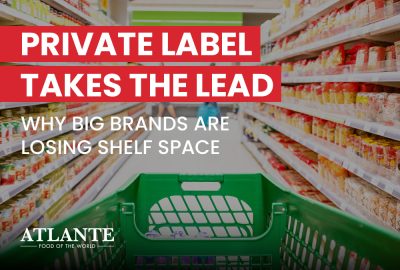Atlante
News
“Future of Food”: Climate Emergency is key

16 October 2023
TBWA’s “Future of Food”
Spanning 48 pages, TBWA’s renowned ‘The Future of Food’ report serves as a valuable resource for companies. This comprehensive document offers insights and strategies to guide production, communication, and establish strategic partnerships.
This study harnesses a hybrid approach that combines strategy and the analysis of data gathered from 42 cultural observatories worldwide, including Italy, which forecasts trends and shifts in the food industry.
The Changing Relationship Between Contemporary Society and Food
The report delves into numerous insights regarding the relationship between contemporary society and food. These insights are presented using exemplary and pioneering cases. In the past five years, there have been significant changes to the world of food and beyond. People have faced isolation due to COVID-19, have gained a heightened awareness of the climate crisis, and are facing challenges in accessing food due to inflation and the strain on resources caused by a growing global population. However, scientific and technological advancements have also opened new possibilities.
These factors have significantly altered consumer expectations of food companies, generating demands that would have been unimaginable just a decade ago.
The Climate Emergency
“We cannot in good conscience tell people that we are in a climate emergency and then encourage them to purchase products that contribute to it,” emphasizes Ziggy Klazes, councillor of Haarlem, the first city to ban meat advertising in public spaces. While this measure may appear extreme and unique, ‘The Future of Food’ reports the voices of numerous leaders who stress the importance of viewing food through an ethical and ecological lens. The meatless movement has been gaining momentum for some time, and today, a wave of initiatives is compelling a shift away from animal-derived products, which are significant contributors to climate-altering emissions. This shift will prompt more companies to reconsider their role in driving the demand for high-carbon foods.
The Transition of Food Production from Farms to Laboratories
As current rates and systems prove unsustainable, food production is transitioning from traditional farming to laboratories, positioning itself as an ethical and eco-friendly alternative for the future. However, it still encounters scepticism and resistance due to its ‘non-natural’ origin.
Companies and government bodies are already investing in communication efforts, which have led to increased consumer interest and sales. One example is UPSIDE Foods, a San Francisco start-up that offers tours of its facility where cultured meat is produced. They emphasize how, “For the first time, delicious and sustainable food can be produced under one roof, right in the heart of an urban community and in full view of consumers.”





